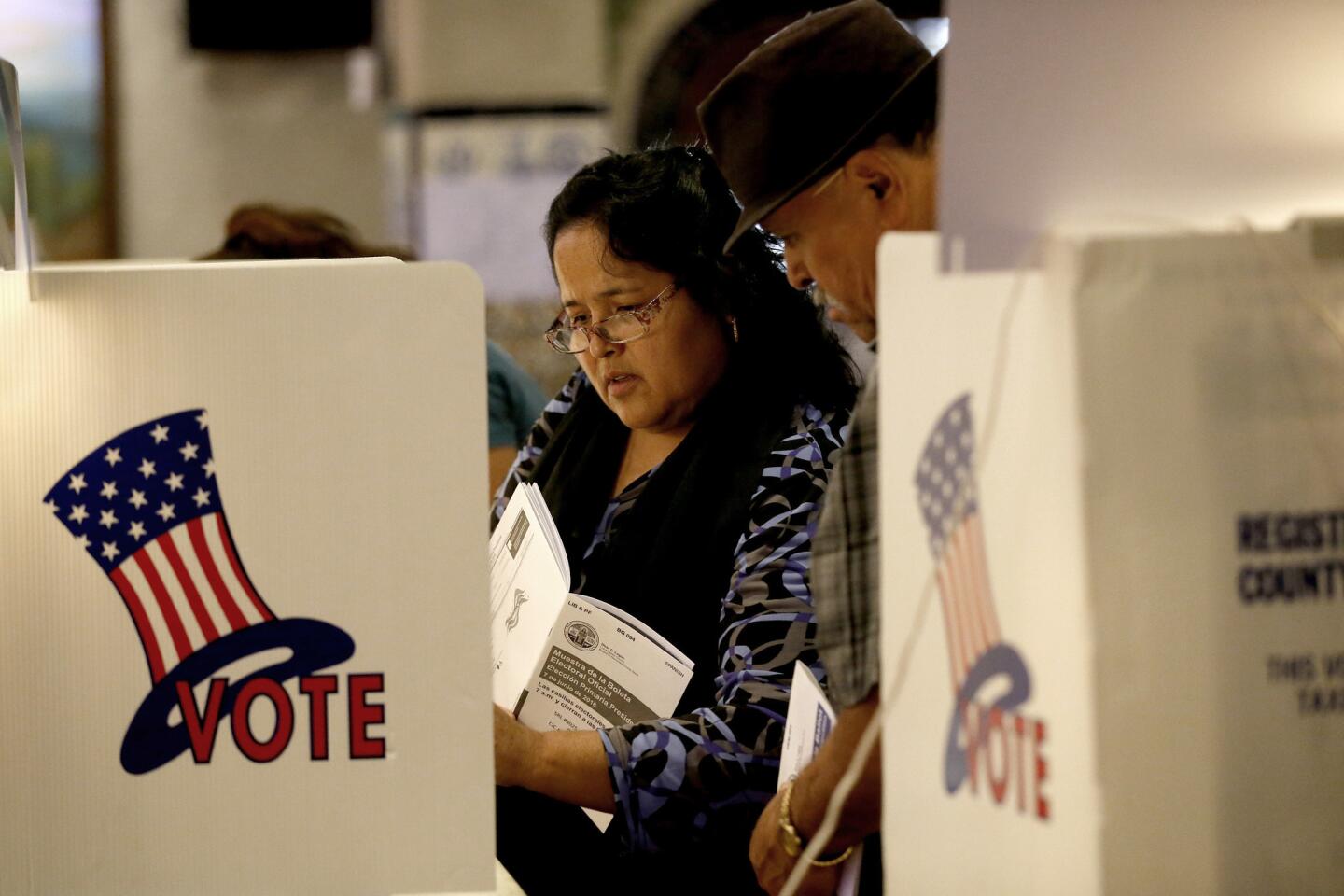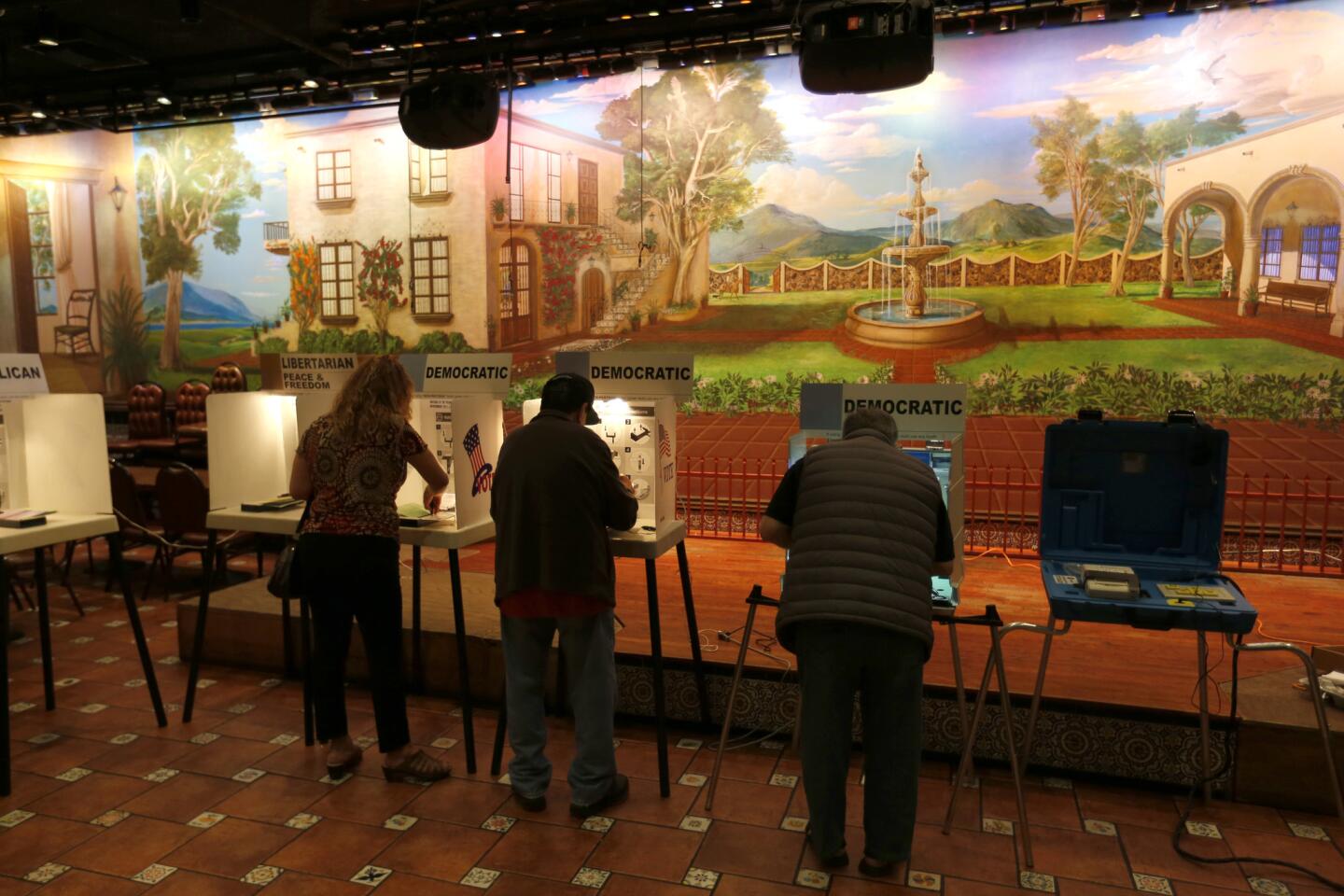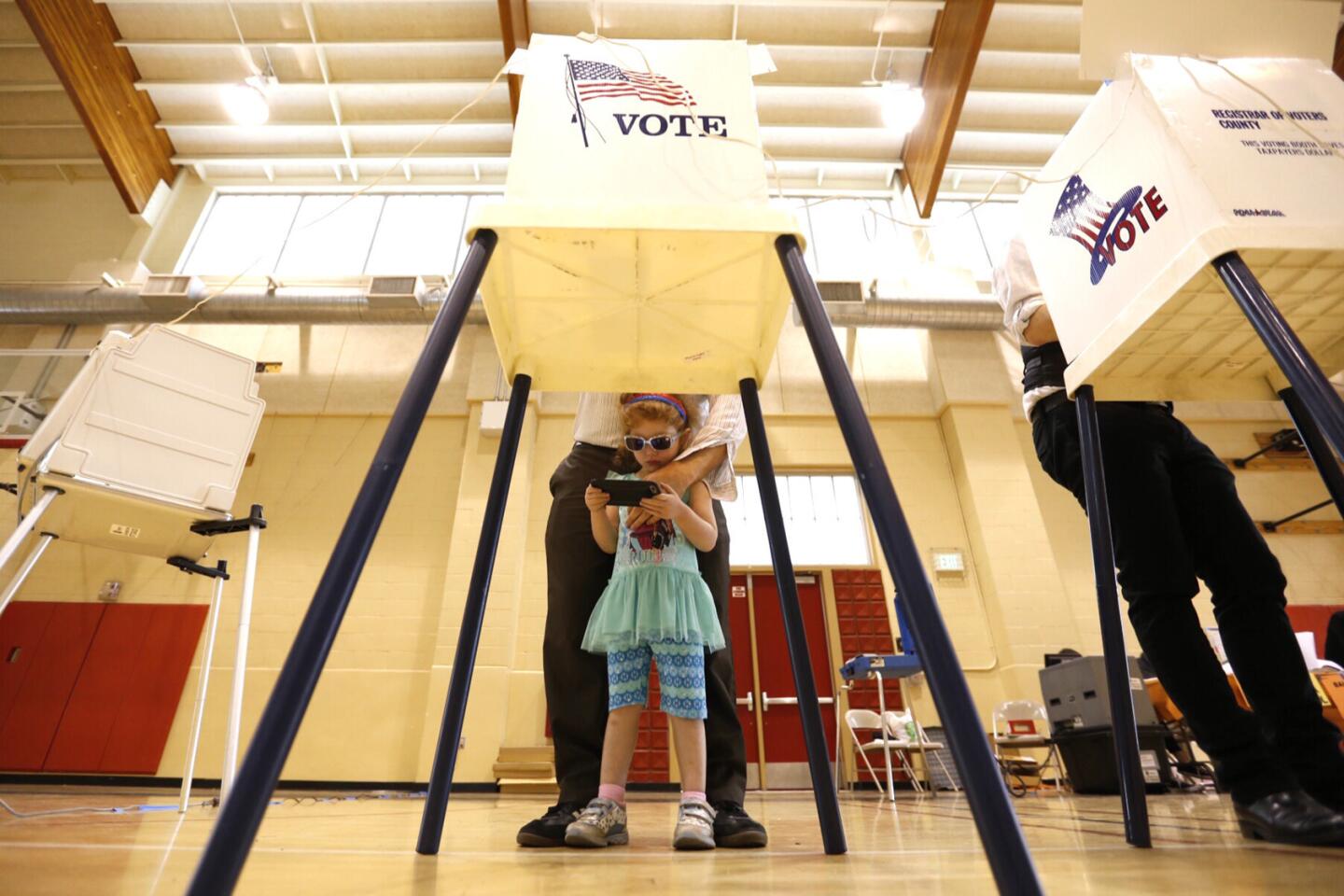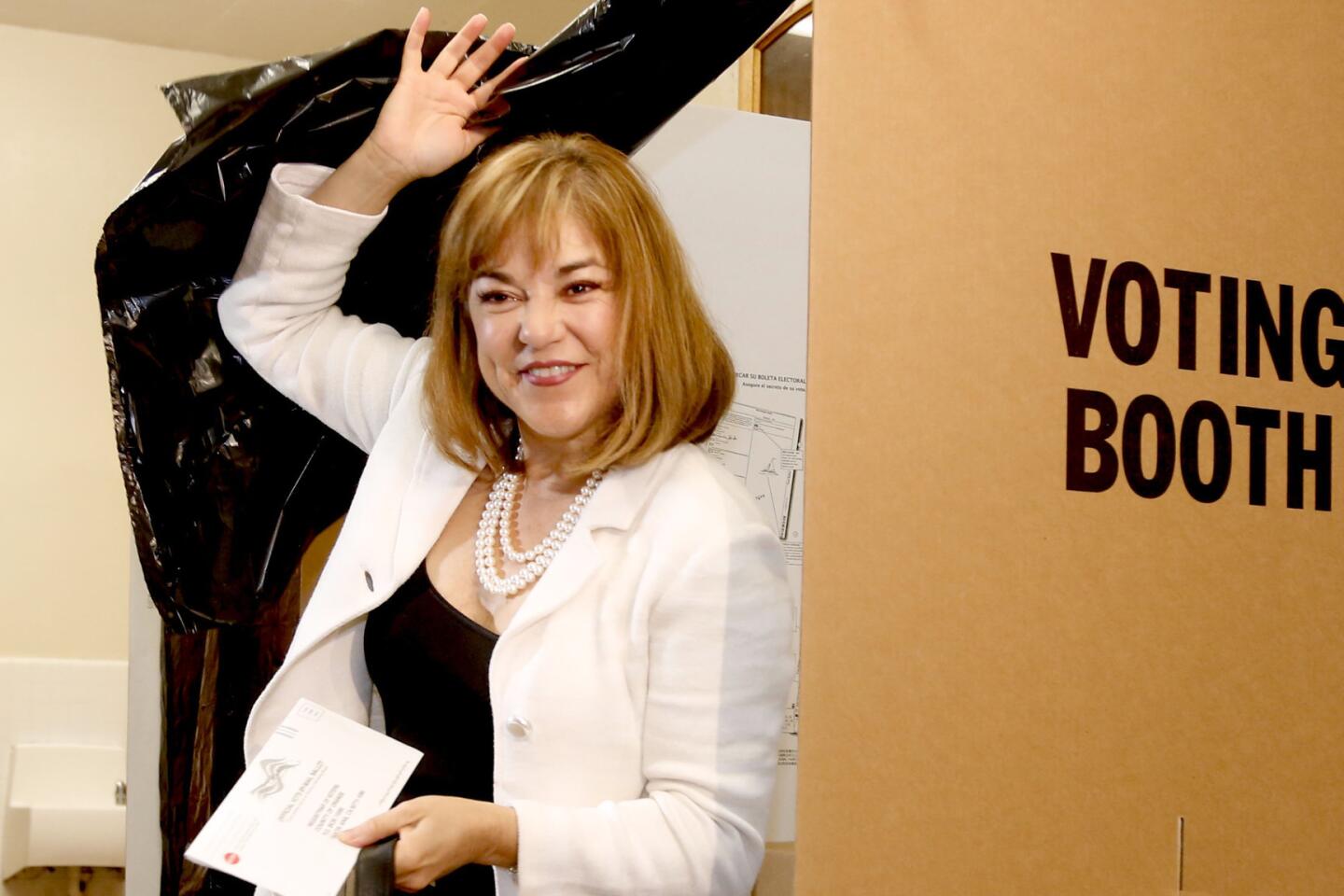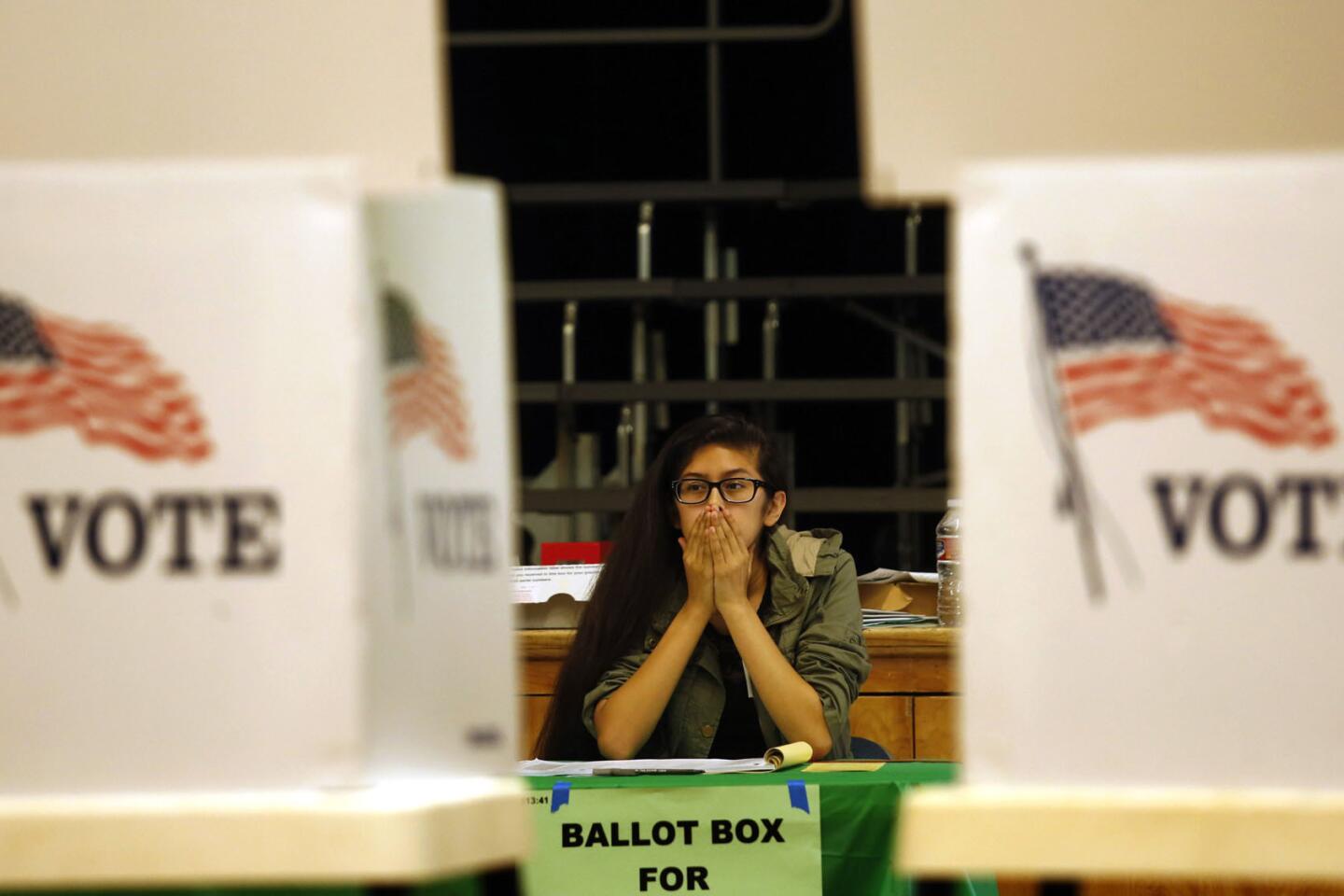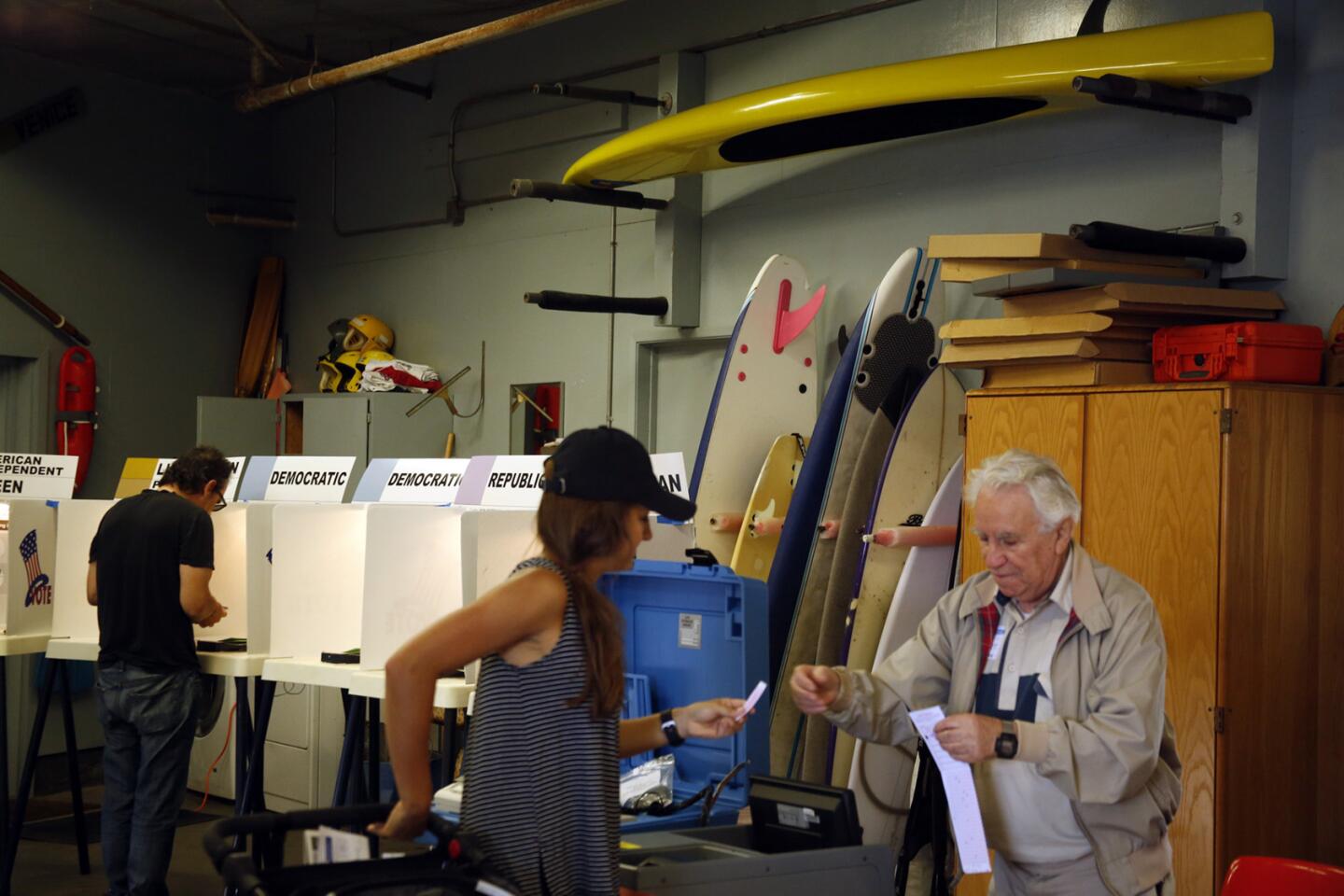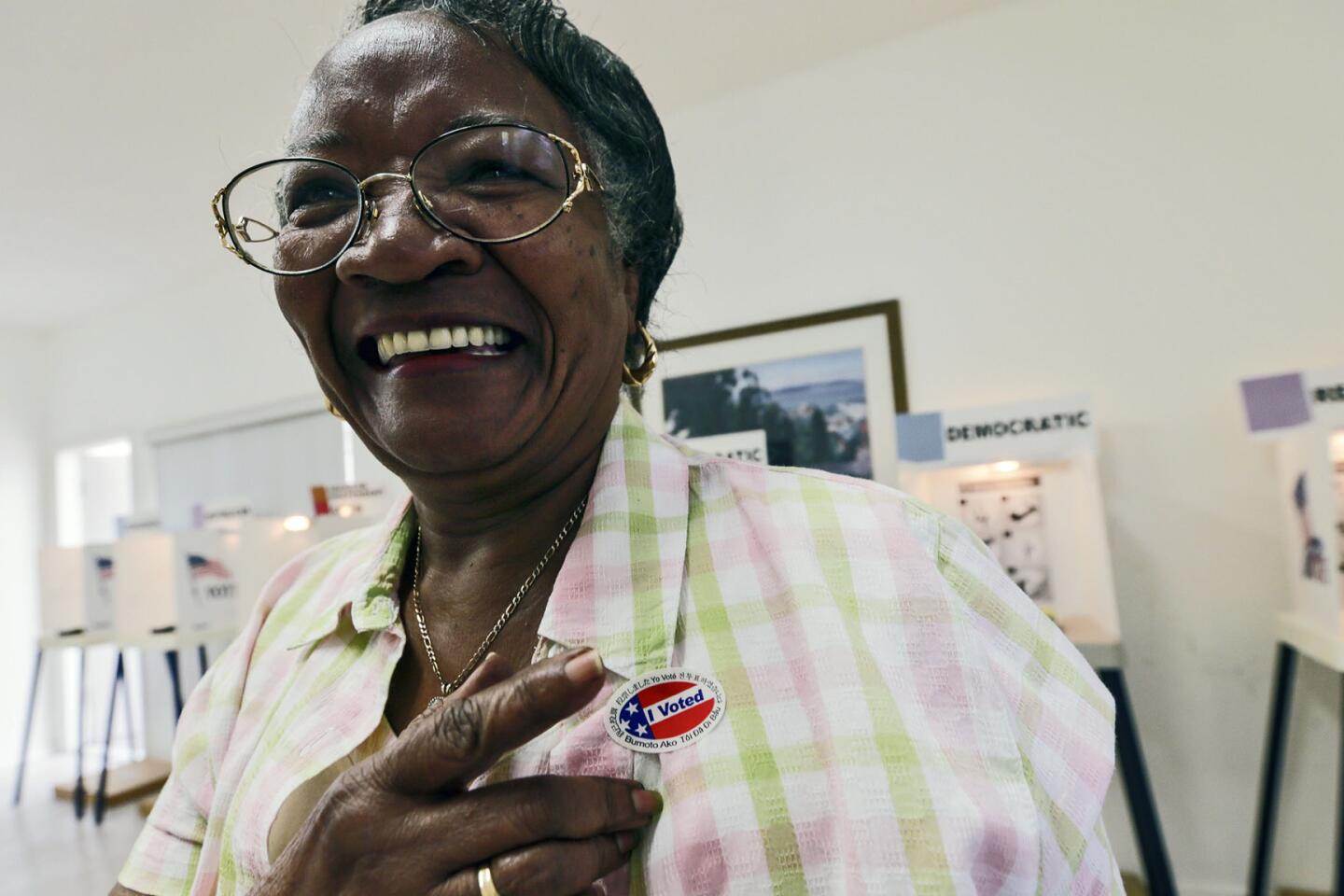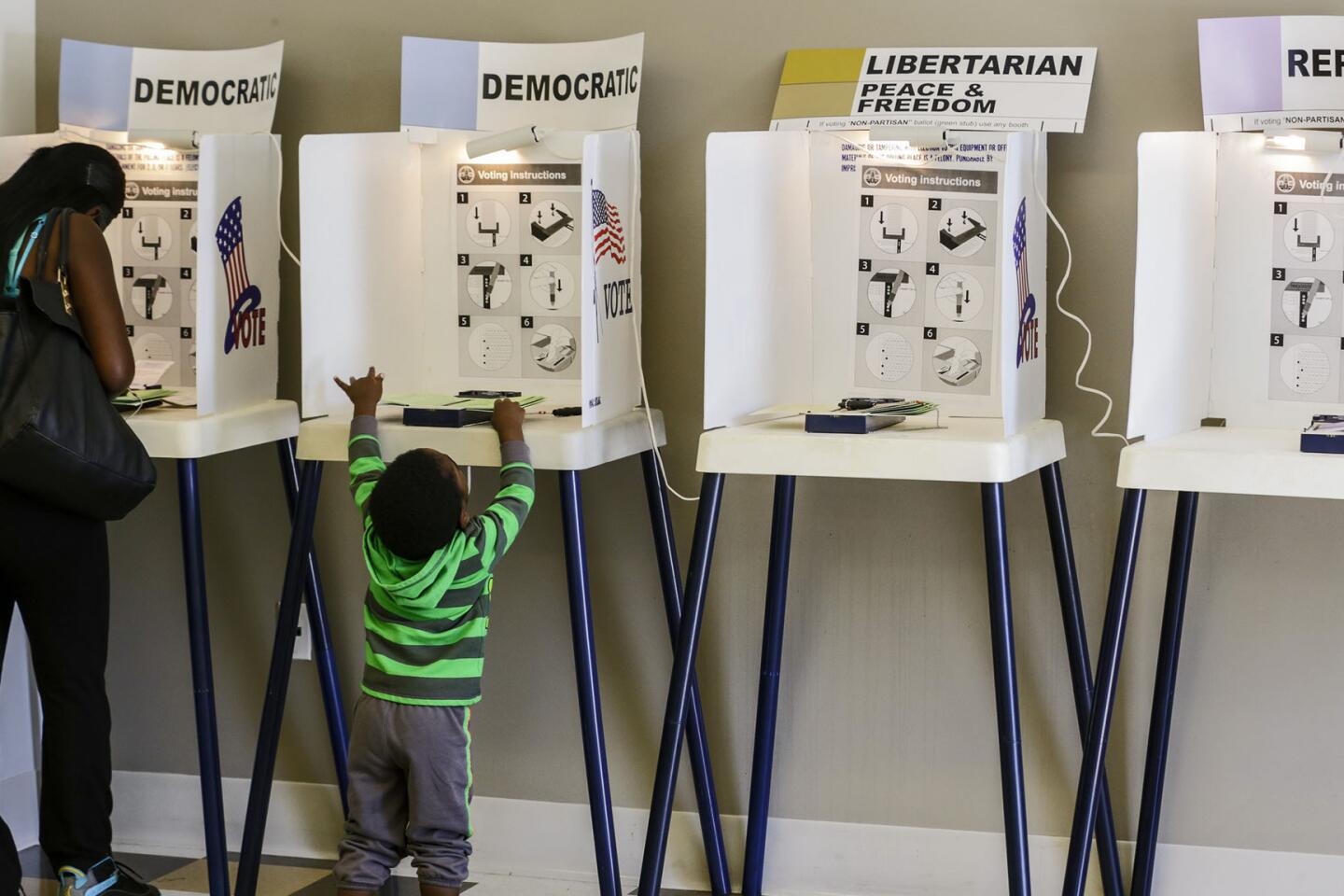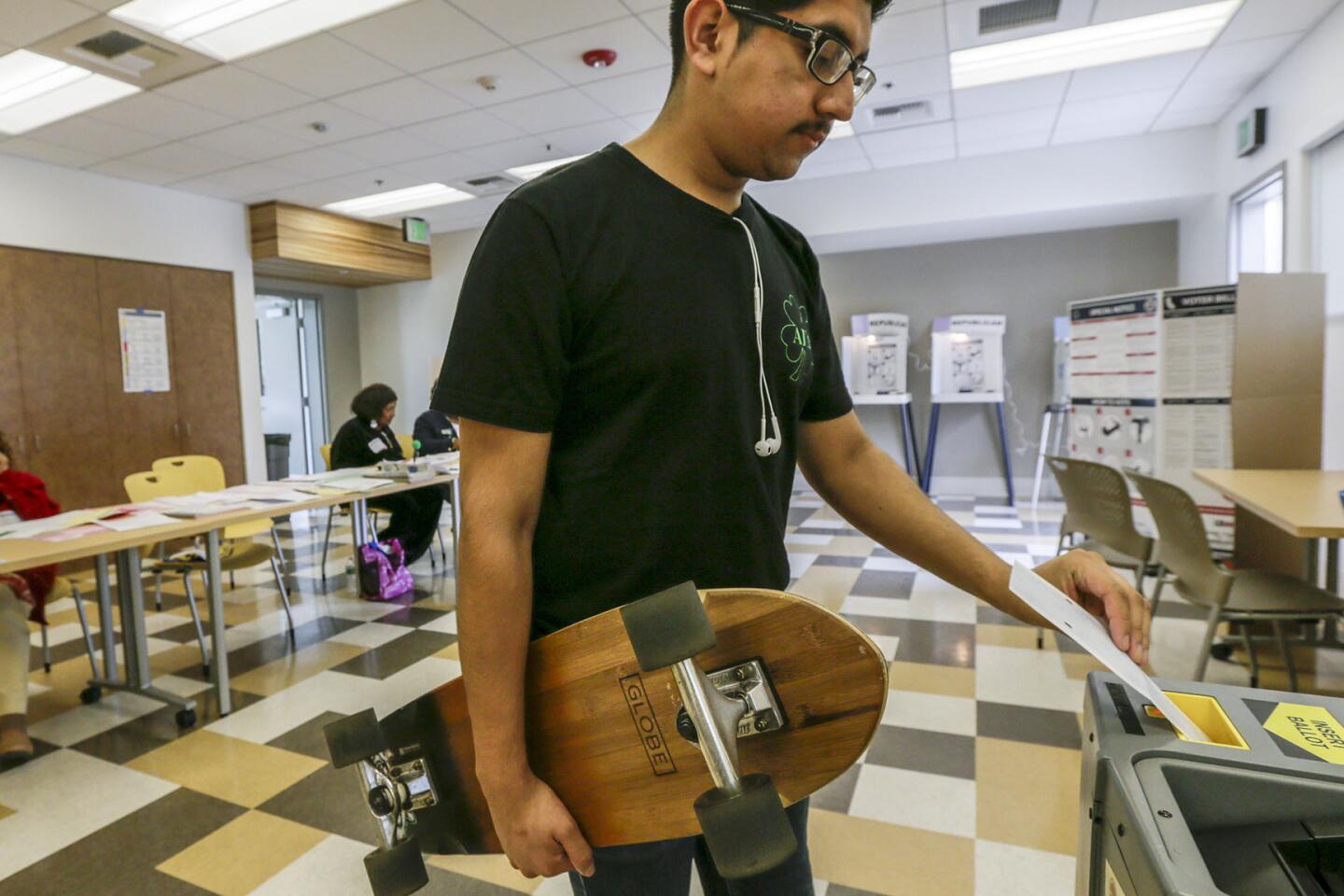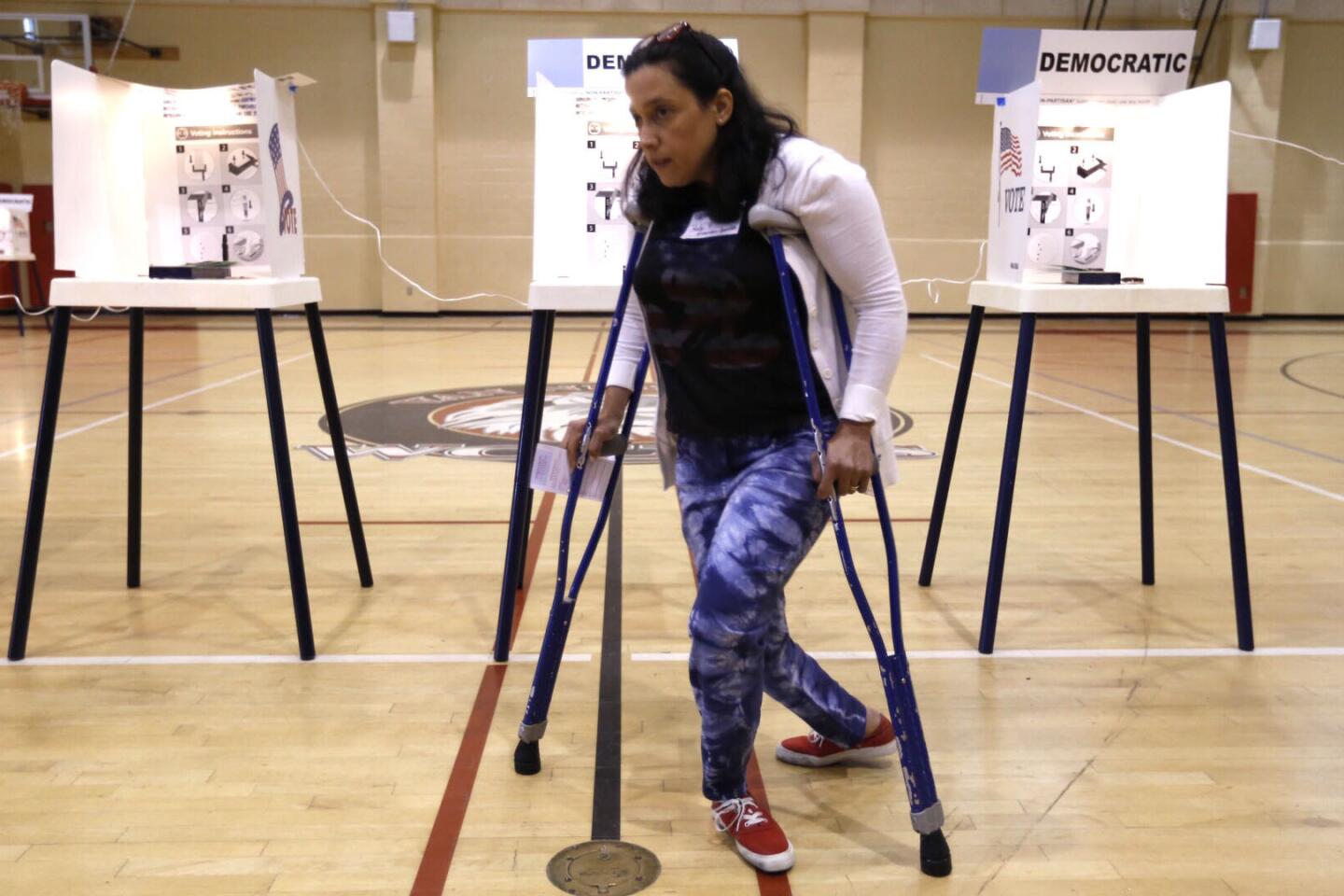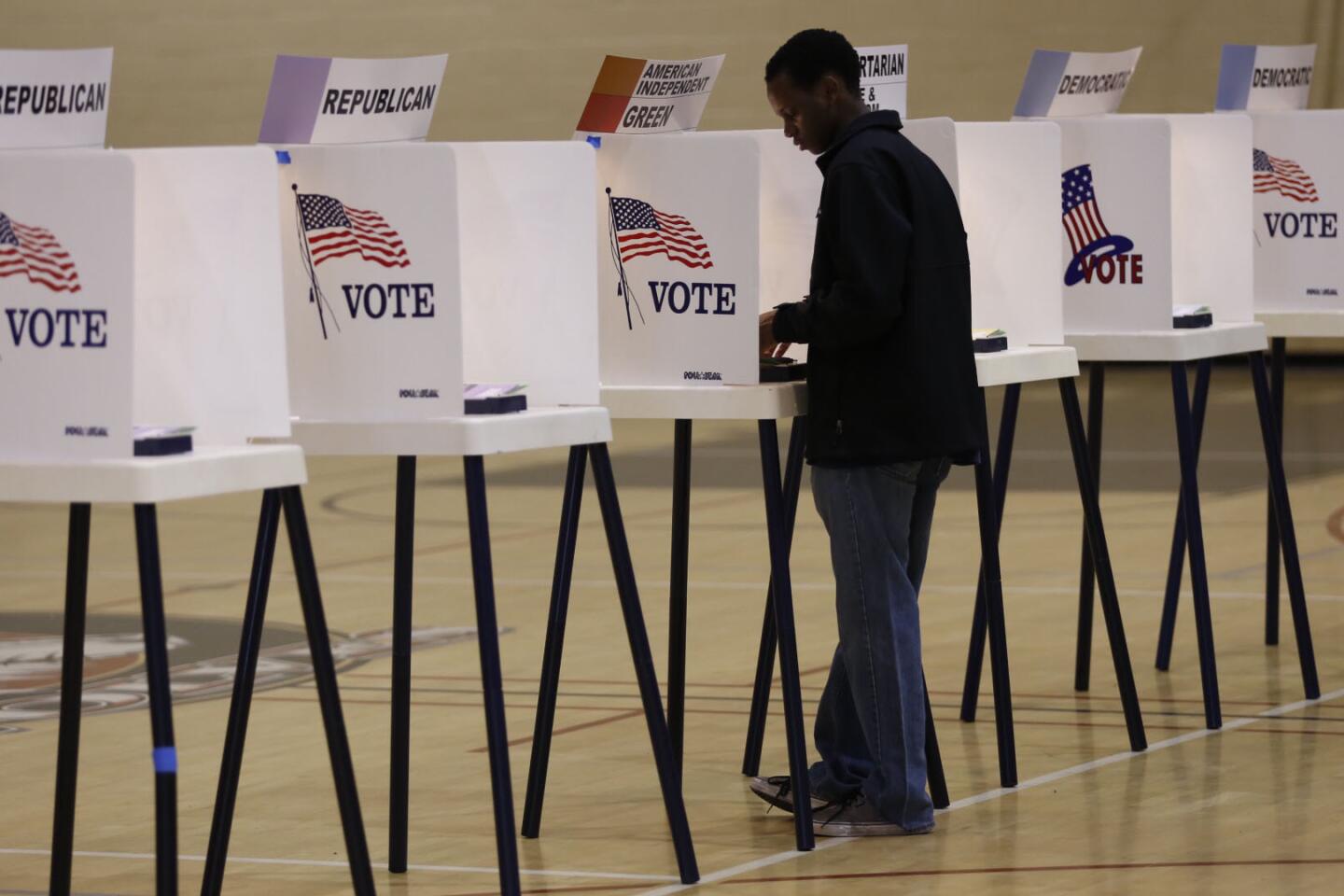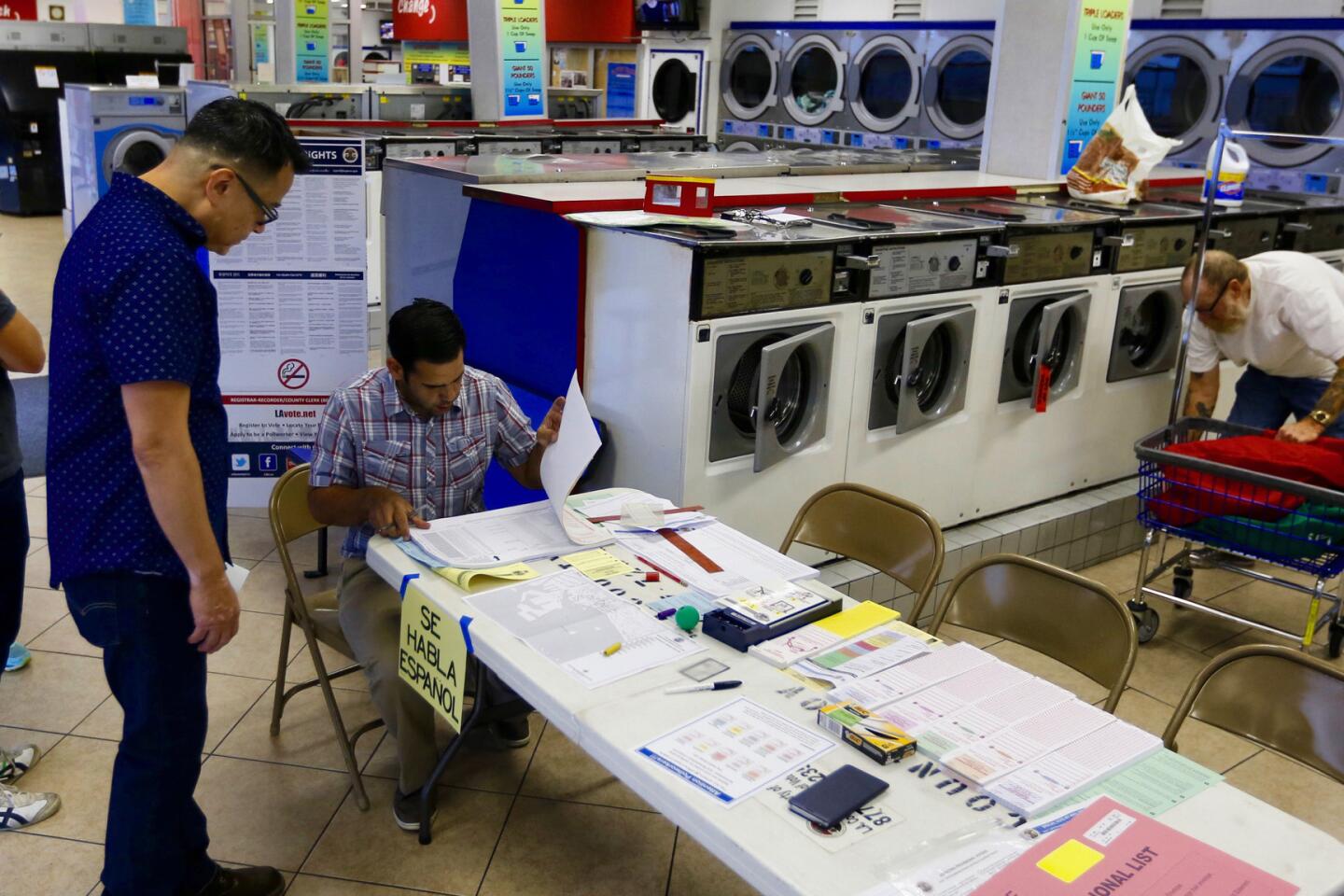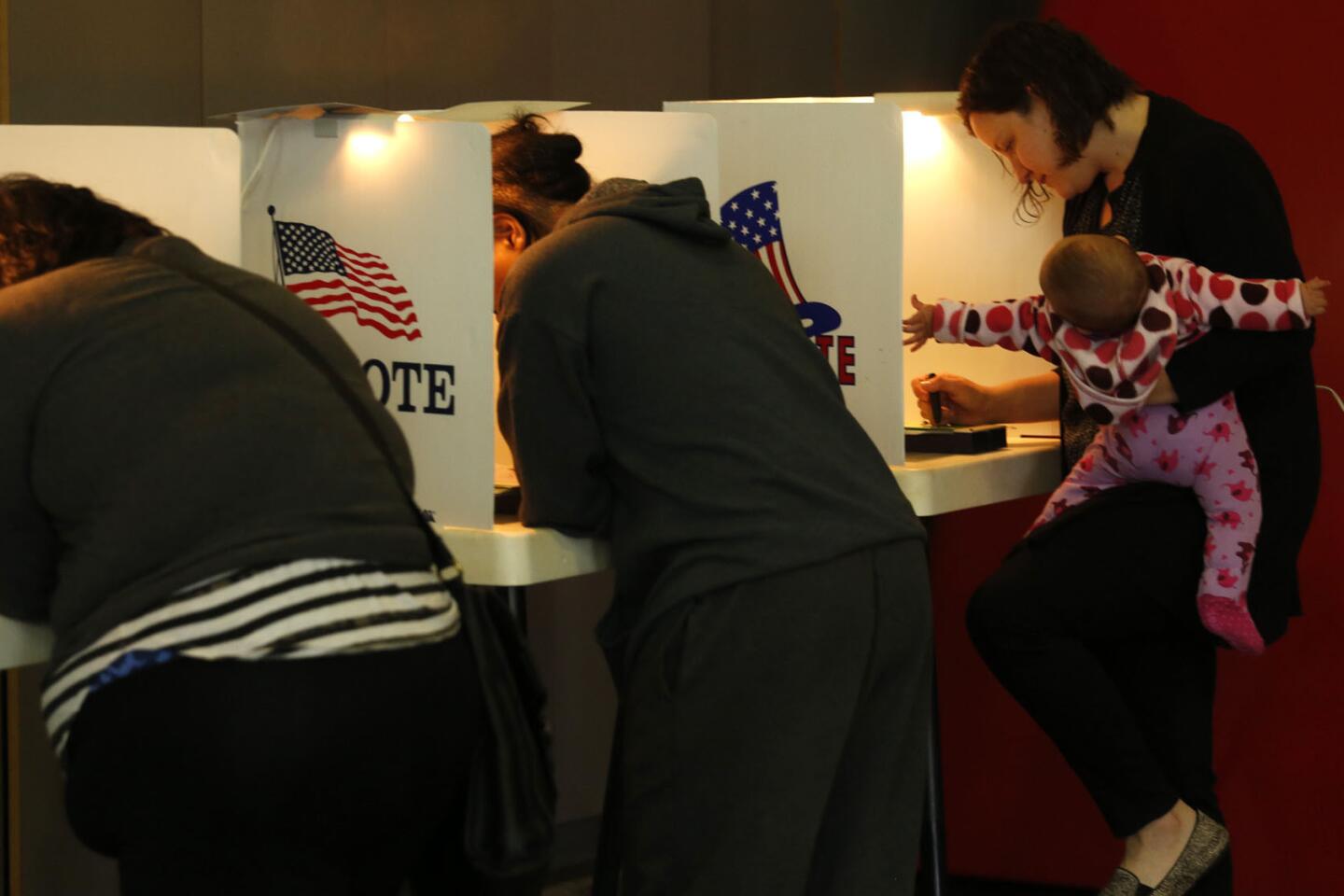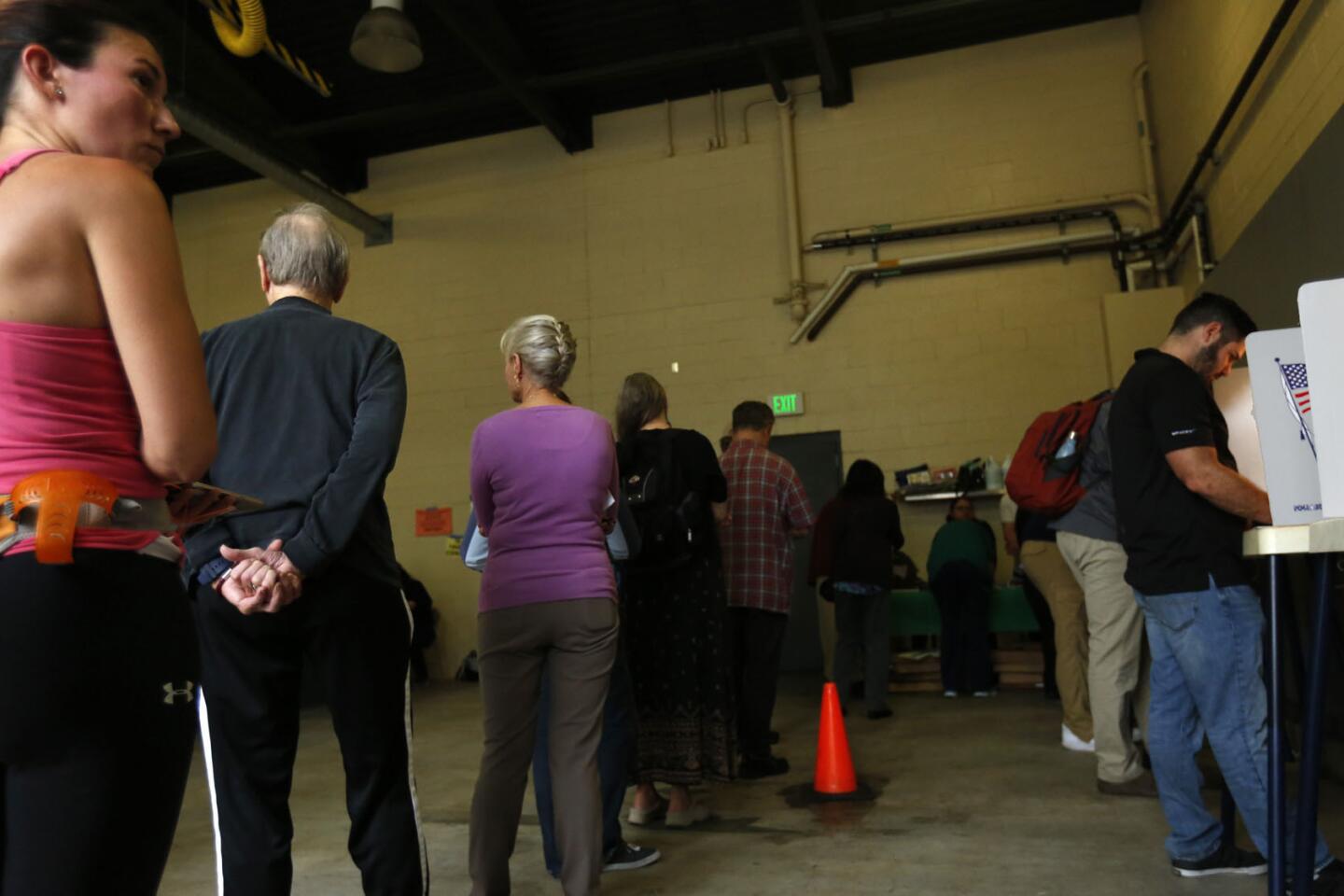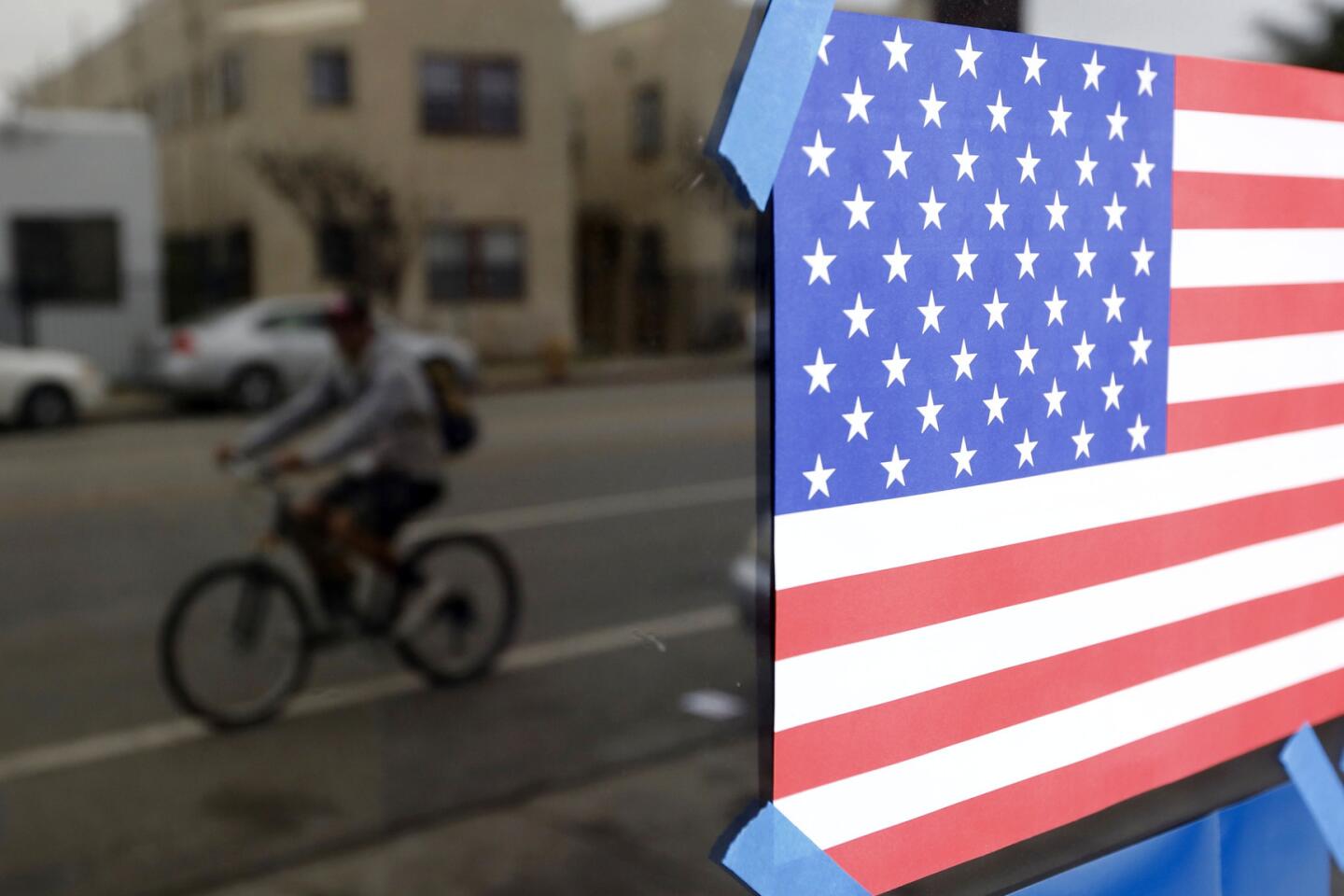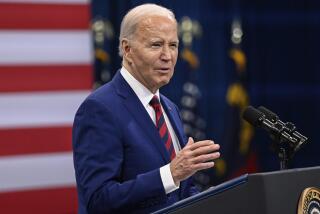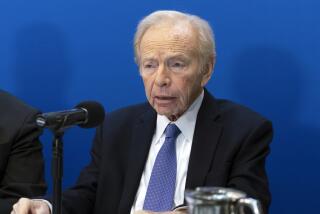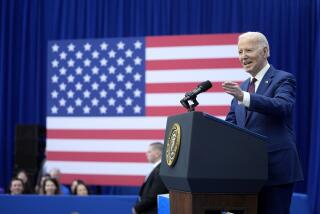Clinton claims milestone as first female major-party nominee, wins California primary
Hillary Clinton carved her name in history Tuesday, becoming the first woman ever chosen to lead a major party into the fall presidential campaign.
The former secretary of State, making her second try for the White House, laid claim to the nomination at an exuberant rally in Brooklyn, N.Y., the state she represented for two terms in the U.S. Senate. Her victory came eight years to the day after she ended her 2008 White House bid.
Addressing a flag-waving crowd filled with women of all ages and ethnicities, Clinton painted her triumph as a major stride in the march for women’s rights, which began more than a century and a half ago at the Seneca Falls Convention in upstate New York.
See more of our top stories on Facebook »
“Tonight’s victory is not about one person,” said Clinton, who took the stage after a filmed tribute to leaders of the suffrage movement and other political pioneers. “It belongs to generations of women and men who struggled and sacrificed and made this moment possible.”
Victories in New Jersey, New Mexico and South Dakota gave Clinton the delegates she needed to win the nomination on the first ballot at next month’s Democratic National Convention and dispelled the notion she might limp to her party’s coronation.
She topped her performance with a surprisingly comfortable victory in California. Vermont Sen. Bernie Sanders notched victories in Montana and North Dakota.
In a nod to her fierce rival, Clinton praised his campaign and the issues he elevated.
“Let there be no mistake,” she said. “Sen. Sanders, his campaign and the vigorous debate that we’ve had about how to raise incomes, reduce inequality, increase upward mobility, have been very good for the Democratic Party and for America.”
Acknowledging her own disappointment eight years ago — “it never feels good … to come up short” — Clinton invited Sanders’ supporters to join her campaign, saying the differences among Democrats pale in comparison to their disagreements with Donald Trump, the presumptive GOP nominee.
She called the Manhattan business mogul temperamentally unsuited to serve as president or commander in chief and said his trademark slogan, a promise to “make America great again,” referred to a less enlightened, more exclusionary past.
“That’s code for let’s take America backward,” she said, “back to a time when opportunity and dignity were reserved for some, not all.”
A grim-faced Sanders addressed a throng of supporters at Santa Monica airport late Tuesday night, drawing boos when he said he had spoken with Clinton and offered his congratulations. The crowd roared, however, when he vowed to continue his campaign — even as he acknowledged it would be a “very, very steep fight.”
Sanders sounded familiar themes, calling for a breakup of the major banks and an overhaul of a “corrupt” campaign finance system. But he reserved his harshest rhetoric for Trump.
“The American people, in my view,” he said, “will never support a candidate whose major theme is bigotry.”
President Obama called both candidates Tuesday night to congratulate them on their campaigns and, at Sanders’ request, planned to meet with the senator Thursday at the White House. Just one election remains on the primary calendar, the Democratic primary next week in Washington, D.C.
In all, six states voted in the second-to-last week of the primary season, which started with Clinton eking out a narrow victory Feb. 1 in Iowa.
Tuesday’s biggest prize, by far, was California, which offered 475 pledged delegates — nearly twice as many as the other states combined.
But California’s import went far beyond those numbers.
It became, in effect, the last battleground of the grinding Democratic contest, a chance for Clinton to punctuate her climb to the nomination with a capstone victory in the nation’s most populous and diverse state — or for Sanders to raise new doubts about her political durability.
Sanders and his supporters had hoped a California victory would send the senator roaring into the party’s convention in Philadelphia with the momentum to reverse Clinton’s lead in pledged delegates and court enough superdelegates — the party’s unbound free agents — to wrestle the nomination away.
Seizing the nomination from the front-runner at this point would be unprecedented in modern times, something Sanders acknowledged Tuesday night in an interview with NBC before the results had rolled in.
“Defying history is what this campaign is about,” Sanders said, though he was vague about his plans.
“I am going to be meeting with our supporters,” he said, “to figure out the best way forward, so that we have a government which represents all of us and not just the [wealthiest] 1 percent.”
But the beginning of the end was clearly at hand, with the only question being how vigorously Sanders would challenge the outcome and what, in turn, he might leverage in the process.
After holding back for months, House Democratic leader Nancy Pelosi endorsed Clinton even before the first polls closed Tuesday and nudged Sanders to get behind the party’s presumptive nominee.
Election 2016 | Live coverage on Trail Guide | Track the delegate race | Sign up for the newsletter
“Bernie knows better than anyone what’s on the line in the election and that we at some point have to unify as we go forward,” the San Francisco Democrat said on ABC.
Former New Mexico Gov. Bill Richardson, a superdelegate and Clinton supporter, offered the same respectful but blunt counsel.
“After Tuesday, there needs to be an understanding that Sanders goes to the convention with major clout and becomes a major Democratic player — but Hillary Clinton becomes the nominee and gets his support,” Richardson said.
Sanders, who has spent most of his decades in politics outside the Democratic Party as a democratic socialist, proved a much stronger challenger than Clinton and even his own campaign expected.
But he failed to overtake Clinton by every measure save, perhaps, the outspokenness and vociferous nature of his supporters.
Entering Tuesday’s primaries, Clinton had won more contests than Sanders, 28-23. She received 3 million more votes than he did. She also led him in both pledged delegates and unbound superdelegates.
Still Sanders pressed on, for months after simple mathematics made clear it would be all but impossible for him to overtake Clinton.
For California, the result was something the state hadn’t seen in generations: a bona fide presidential campaign.
The two candidates and their surrogates staged scores of events, from the Mexico border in the south to the redwood forests in the north. They ordered In-N-Out, visited black churches in Los Angeles and Oakland, strolled the Santa Monica Pier and Echo Park and San Francisco’s Chinatown and Haight-Ashbury district.
They discussed gentrification in the pricey Bay Area, drought and poverty in the Central Valley and, in Sanders’ case, dived into the debate over a likely November ballot measure to legalize marijuana. “It makes sense,” Sanders said.
The fact that none of it would have very much impact on the trajectory of the Democratic race did little to tamp enthusiasm.
In the final six weeks of eligibility, nearly 650,000 Californians signed up to vote, pushing total registration to nearly 18 million voters, the most ever heading into a primary election.
A surge of Democrats widened the majority party’s already sizable lead over Republicans, boosting Clinton’s prospects of carrying the state in November despite vows by Trump to put the state in play.
Clinton’s husband, Bill Clinton, moved California into the Democratic column in his first run for president in 1992, and the state has stayed there ever since.
Barabak reported from Los Angeles and Memoli from Brooklyn. Times staff writer Melanie Mason in Sacramento contributed to this report.
MORE ELECTION NEWS
California primary live updates: Polls are open in the Golden State
As Republicans line up behind Donald Trump, some wonder what they’re in for
UPDATES:
June 8, 3:25 a.m.: This article was updated with Clinton’s win in California.
11:22 p.m.: This article was updated with information on Sanders’ speech and his Montana victory.
9:11 p.m.: This article was updated to report Clinton won the South Dakota primary.
8:31 p.m: This article was updated to include more detail from Clinton’s speech.
7:29 p.m.: This article was updated to include Clinton’s remarks from her victory speech.
7:02 p.m.: This article was updated to report Sanders won the North Dakota caucuses.
6:14 p.m.: This article was updated to report Clinton won the New Jersey primary.
6:08 p.m.: This article was updated to report Donald Trump won the New Jersey primary.
This article published at 1:47 p.m.
More to Read
Get the L.A. Times Politics newsletter
Deeply reported insights into legislation, politics and policy from Sacramento, Washington and beyond. In your inbox three times per week.
You may occasionally receive promotional content from the Los Angeles Times.
